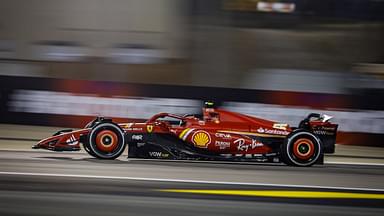F1 is one of the most expensive sports in the world and there is a good reason for that. The cars that F1 racers drive itself cost in excess of a whopping $16 million (15 million euros), according to redbull.com. And since the engine is the most critical component of a car, it is no surprise that it is the most expensive. But how much does it really cost in 2024?
As per the same report issued by Red Bull’s bulletin, the price for an engine is $11 million (10 million euros). However, it is pertinent to note that there are some other reports such as that of en.as.com, which estimates the price of an engine to be a staggering $16.25 million.
The primary reason why F1 engines are so costly is because of how complex they are. As per the latest regulations that were introduced from the 2022 season onwards, F1 retained the 1.6 L V6 configuration for engines.
However, they decided to add a motor generator unit-kinetic (MGU-K) system alongside the previous motor generator unit-heat (MGU-H) system. F1 deemed this change essential as the new engine is now more powerful and also helps the driver have more control over the performance of the car.
Since F1 is committed to going net carbon zero from 2030 onwards, they also introduced a new rule for fuel. Now, all teams will need to use a more sustainable E-10 fuel (minimum of 10%) alongside fossil fuel (not more than 90%). F1 decided to keep the rest of the rules relatively stable because of how the COVID-19 pandemic affected the teams’ finances.
Which are the different engine manufacturers in F1?
Although there are 10 different F1 teams, not all the sides produce their own engines. Most of the constructors are customer teams and rely on some other companies to provide them with their power units. As things stand, Red Bull is a prime example.
They receive their engines from Honda currently, although things will change from the 2026 season onwards when they begin to create their own power unit thanks to their partnership with Ford. Another top team that does not produce their own engines is McLaren.
They currently receive their power unit from Mercedes, who also happens to be one of their rivals on the track. As things stand, only three teams (Mercedes, Ferrari, and Alpine) operate as work teams, which means that they also produce their own power units.
Meanwhile, all the rest of the seven sides are customer teams and purchase their engines from one of the current four power unit suppliers. The current companies that provide engines are Mercedes, Ferrari, Honda and Renault. Below is the entire list of teams and who they receive their engines from as of 2024.
| Rank | Team | Engine |
| 1 | Red Bull Racing | Honda |
| 2 | Mercedes | Mercedes |
| 3 | Ferrari | Ferrari |
| 4 | McLaren | Mercedes |
| 5 | Aston Martin | Mercedes |
| 6 | Alpine (Renault) | Renault |
| 7 | Haas | Ferrari |
| 8 | Alfa Romeo Racing | Ferrari |
| 9 | Williams | Mercedes |
| 10 | AlphaTauri | Honda |





